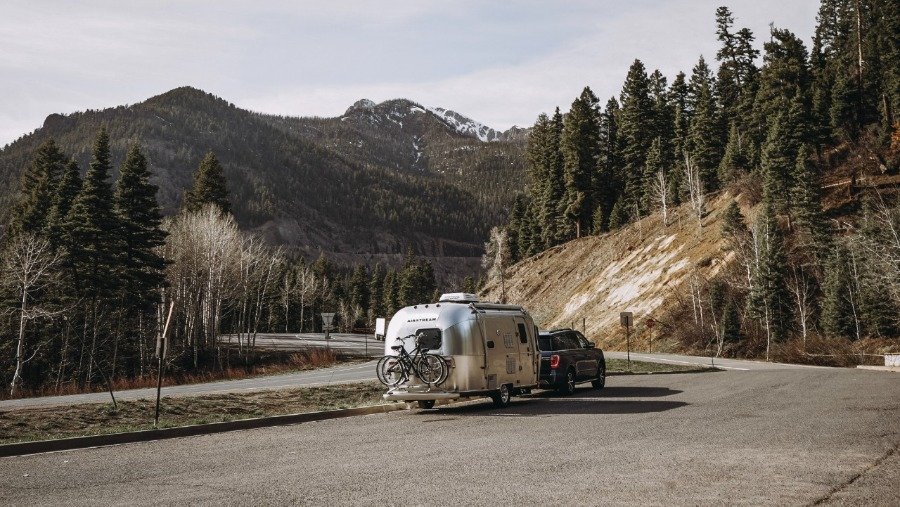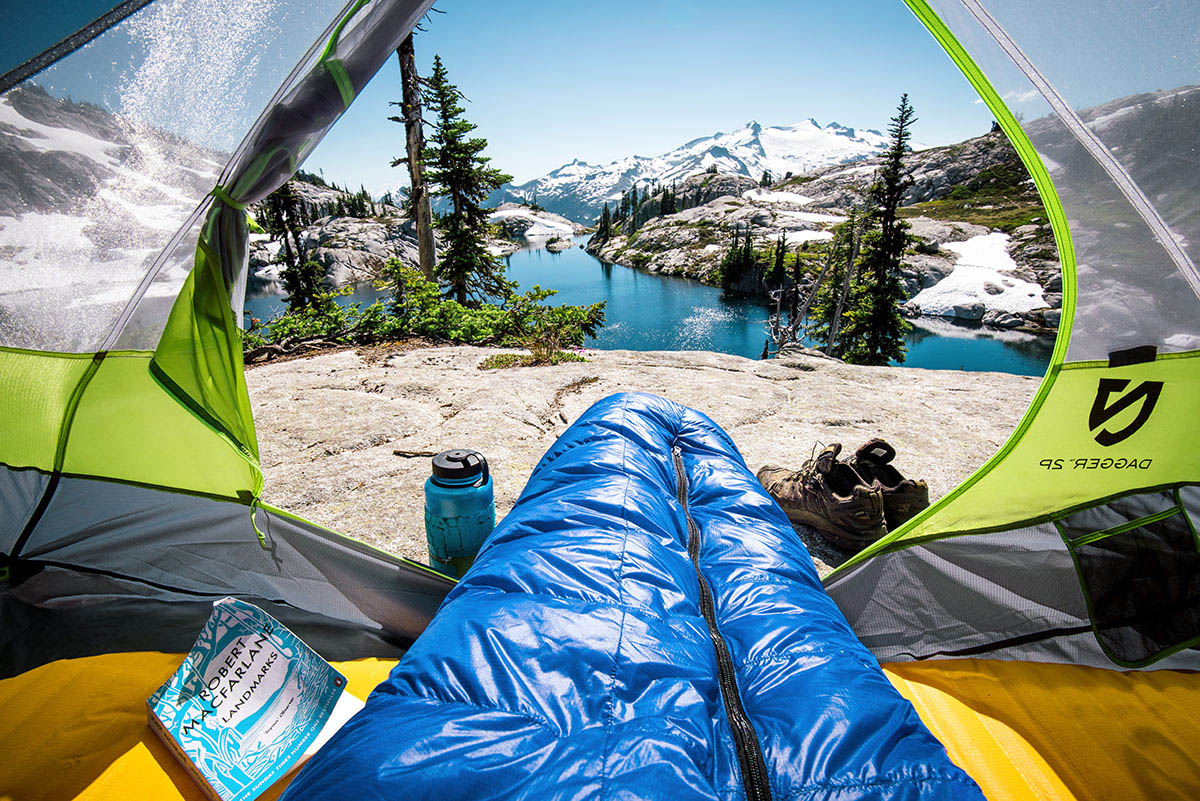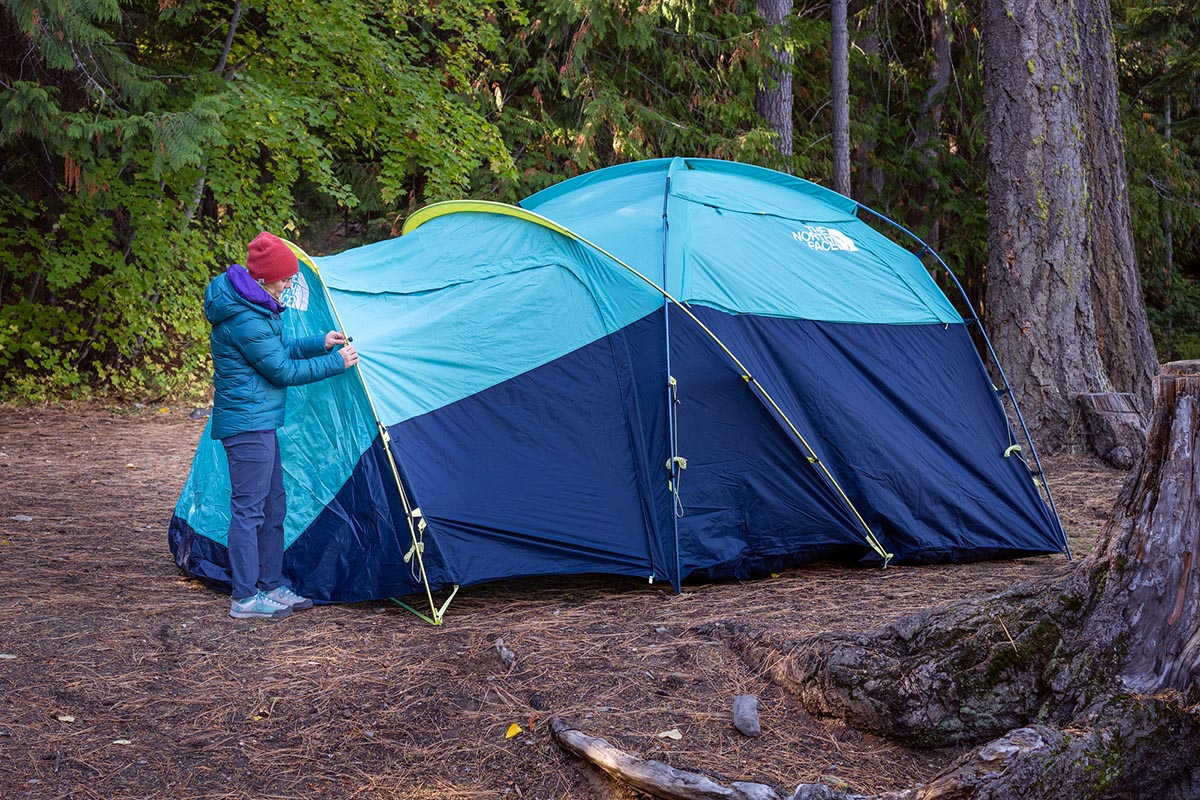Gas Prices Cause Van Lifers & RVers to Alter Summer Travel Plans
Long Beach, Calif., native Stuart Takehara started living life on the road about 2 years ago, remotely managing his businesses while exploring the country. But driving a 40-foot RV while towing a Jeep comes with challenges. When gas prices soared this year, Takehara decided to ditch his “big ol’ machine” for a Mercedes Sprinter.
As he waited in St. Louis on June 24 for the van’s owner to arrive from North Carolina, the 43-year-old and van lifer reflected on his decision.
“A lot of it is cost savings,” Takehara said. “I won’t have a rig and a car. I’m saving on insurance. I don’t have to spend money on campsites and places to stay … In the rig, I’m getting 7-8 miles per gallon. From what I’ve heard, I could expect 16-18 miles per gallon with the van. I can cover more ground and save more money.”
Across the country, soaring gas prices have caused Americans to reevaluate their summer plans. The last two years of pandemic-induced quarantine resulted in a renewed eagerness for travel, boosting summer bookings for hotels and flights in March and April.
Yet travelers now face a new problem, as economic pressures pump the brakes on the cherished tradition of the American road trip.
Record Gas Prices Take a Toll
Gas prices spiked in March, surpassing $5 a gallon, and have continued to climb. In mid-June, AAA recorded the highest-ever average prices for both regular unleaded and diesel fuel, which reached $5.01 on June 14 and $5.81 on June 19, respectively.
For both full-time van-dwellers and families on RV road trips, the result will likely be the same: less traveling and prolonged stays in the same place — usually close to home.
“Nobody is really getting out of the lifestyle, from what I’m seeing,” Takehara said. “I’ve talked to other RVers about their travel habits and what they’re doing differently. What I’ve found is that people are just traveling less and staying in one spot longer.”
Observed statistics bear out Takehara’s take. A June survey from RV Trader asked 1,800 shoppers if they planned on traveling in an RV within the following 3 months. Of the 935 people who said yes, 57% admitted to changing their plans as a result of unprecedented gas prices.
Those adjustments include traveling fewer miles (50%), staying in one location for longer (36%), and canceling the trip altogether (21%). About 11% said they would consider buying a more fuel-efficient vehicle.
“We expect local and hyper-local travel to increase,” said Rachel Heseltine, a media representative for RV Trader. “Travelers looking to shed gas costs might tighten their travel range, opting to move into locations closer to their original departure location.”
To Drive or to Fly?
Brett Schmechel had big plans for 2022. After moving to Austin in 2014, Schmechel spent every summer tent-camping in the American West to escape the Texas heat. His “COVID pandemic project” involved buying and converting a Dodge Ram ProMaster. After spending about $30,000, he finished the buildout a few months ago.
The 33-year-old planned to drive to Bend, Ore., this summer. In the fall, he and his girlfriend wanted to drive up the East Coast to Maine, visiting national parks along the way.
But the two made those plans last year, when diesel cost about $3 a gallon. Today, the price tag for the East Coast trip comes to about $1,400, Schmechel said.
Instead of using the converted ProMaster himself, he’s now considering renting it out to others.
“I’m thinking about staying in Austin and just staying in the air conditioning,” he said. “My potential pivot now is destinations I can fly to … I can make it down to Mexico City and visit friends for a couple hundred bucks.”

The Conversation Shifts
Schmechel isn’t the only American who used the pandemic to pursue their van life dreams. While van lifing had become a trend well before Covid-19, sales of vans and other recreational vehicles soared during the pandemic. At the time, gas was cheap and remote work motivated many Americans to reassess their lifestyle.
Social media remains a hotbed for sales of recreational vehicles and tips on how to convert them for long-term trips. While interest in the lifestyle hasn’t slowed much, the pages now feature more conversations about fuel costs and places where you can prolong your stay.
“It might shift the relationship with vanlife,” Schmechel said about the increased economic pressures. “People who live full-time in a given city in a vehicle won’t have as much trouble. The people who treat it as a luxury will be impacted a bit more.”
Cost of Gas Soars, Travelers Scale Back
For some of those living full-time on the road, the rise in gas prices still hasn’t impacted the lifestyle’s advantages.
For over a year, Whimsical Cyn has been living with her partner in a Ford E450 shuttle bus, which only gets 7-9 miles per gallon. Yet paying more for gasoline has still affected them less than the increased cost of rent — or campgrounds.
“Even campgrounds are still half the price of an apartment, but without the security deposit and pet rules and crappy neighbors,” Cyn said. “The gas prices, at most, might keep us from doing crazy long trips. Instead, we would spend more time in each area before moving on and then not go super far.”
Like Takehara, however, the couple will soon sell their bus, mainly because of vehicle maintenance issues. Instead, they’ve decided to opt for a travel trailer and cargo van setup.
“I’ve done a trailer and truck in the past and it worked out okay,” Cyn said. “If we pull with a van, we can do a basic conversion inside that and go on excursions from any campground we’re parked at and get probably double the gas mileage which would be nice.”
While gas prices have certainly impacted how people travel, those committed to the lifestyle will find ways to make it work, Takehara said. He’s made a new community of friends across the country, and he’s not willing to give that up.
“Right now, I have no end date,” he said. “There’s still things on my list to do. And places I want to go. As long as I can keep working remotely, I’m going to keep living on the road.”







